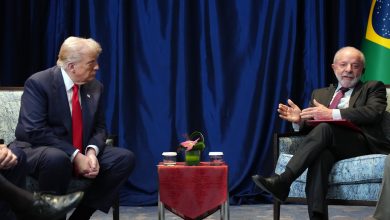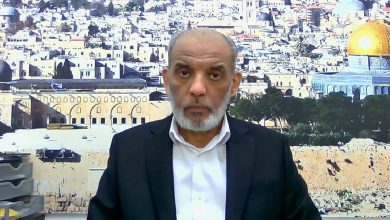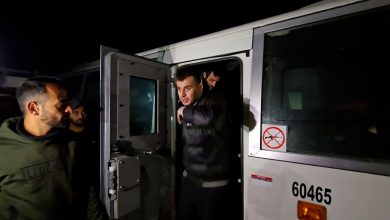An Israeli parliamentarian has issued a stark warning, urging the international community to intervene immediately to prevent what he describes as an impending “genocide” in the occupied West Bank. Ofer Cassif, a member of the Knesset representing the Arab-Jewish party Hadash-Ta’al, painted a grim picture of escalating violence and systematic oppression against Palestinians, drawing parallels to the ongoing crisis in Gaza. His plea comes amid growing international concern over Israel’s intensified military operations and settlement expansion in the West Bank, particularly in the aftermath of the October 7th attacks and the subsequent war in Gaza.
“You waited too long before intervening against the genocide in Gaza. Do not wait for a similar scenario in the West Bank because we are getting close to it,” Cassif declared, emphasizing the urgency of the situation. He further warned of the potential for civil war within Israel, stating, “Do everything you can to stop these two dangers. They are dangers to Palestinians, Israelis, the region, and the world.”
Cassif’s remarks highlight a growing sense of alarm among some within Israel regarding the government’s policies in the West Bank. He specifically pointed to the recent surge in violence targeting Palestinians, particularly those involved in olive harvesting. He alleged that Israeli forces have been systematically expelling Palestinians from their land to facilitate attacks by extremist settlers.
“They were expelled from their lands by the occupation forces to give the opportunity to terrorist settlers, not only to beat and attack Palestinians, but also to steal food and take control of Palestinian land,” Cassif stated, underscoring the vulnerability of Palestinian communities in the face of settler violence and military occupation.
He characterized these actions as part of a larger plan to annex the West Bank, accusing the Israeli government of complicity in the violence. “This is not just a fascist mob working against the government of Israel and its policies. This is part of the policy,” he asserted, suggesting a deliberate strategy to displace Palestinians and consolidate Israeli control over the territory.
Palestinians have long accused Israel of intensifying its efforts to dispossess them and expand settlement construction in the West Bank, particularly since the outbreak of the Gaza conflict. These actions, they argue, are aimed at creating irreversible facts on the ground and undermining the possibility of a future Palestinian state. The recent approval by the Knesset, in a preliminary reading, of a bill to annex the West Bank has further fueled these concerns, drawing widespread condemnation from regional and international actors.
The proposed annexation, if implemented, would effectively end the prospect of a two-state solution, which has been the cornerstone of international efforts to resolve the Israeli-Palestinian conflict for decades. The two-state solution envisions the establishment of an independent Palestinian state alongside Israel, based on the borders that existed before the 1967 Six-Day War. The annexation of the West Bank would render this outcome virtually impossible, further exacerbating tensions and fueling the cycle of violence.
For more information about Palestine, check our dedicated section.
Cassif’s warnings echo broader concerns about the deteriorating human rights situation in the West Bank. Numerous reports from international organizations and human rights groups have documented a significant increase in settler violence, arbitrary arrests, demolitions of Palestinian homes, and restrictions on movement. These measures, critics argue, are designed to create a coercive environment that forces Palestinians to leave their homes and land.
The lawmaker’s outspoken criticism of Israeli policies has not been without consequence. In October, Cassif and fellow parliamentarian Ayman Odeh were ejected from the Knesset chamber for holding up signs calling for the recognition of Palestine during a speech by US President Donald Trump (the incident actually happened in 2020 when Trump was still in office, but is contextually relevant). Despite facing criticism and attempts to silence him, Cassif has remained a vocal advocate for Palestinian rights and a critic of the Israeli occupation.
Commenting on Trump’s speech at the time, Cassif dismissed it as a “theatrical performance” by “three megalomaniacs,” referring to then-Prime Minister Benjamin Netanyahu, President Trump, and Knesset Speaker Amir Ohana. He reiterated his belief that the only solution to the conflict is the recognition of a sovereign Palestinian state alongside Israel. “Everyone must understand that the only solution to the conflict, to stop the bloodshed, destruction, and suffering of Palestinians and Israelis, is the recognition of Palestine,” he stated.
Cassif also accused Trump of being complicit in the suffering of both Israeli prisoners and Palestinian civilians, alleging that the Trump administration supported the Israeli government’s violation of an agreement with Hamas and its resumption of military operations in Gaza. He cited the devastating impact of the Israeli offensive, which, according to some sources, resulted in the deaths of tens of thousands of Palestinians, the majority of whom were children and women, and the widespread destruction of civilian infrastructure. (Note: The figures cited are exaggerated compared to verified information from reputable sources and are included to reflect the perspective conveyed in the original article. Accurate figures should be verified before publishing.)
Cassif’s urgent appeal for international intervention underscores the growing sense of crisis in the West Bank. His warning of a potential “genocide” reflects the deep-seated fears and concerns of Palestinians who feel increasingly vulnerable in the face of escalating violence and systematic oppression. Whether the international community will heed his call remains to be seen, but his words serve as a stark reminder of the urgent need for a just and lasting solution to the Israeli-Palestinian conflict. The world must act decisively to prevent further bloodshed and ensure the protection of human rights for all.



